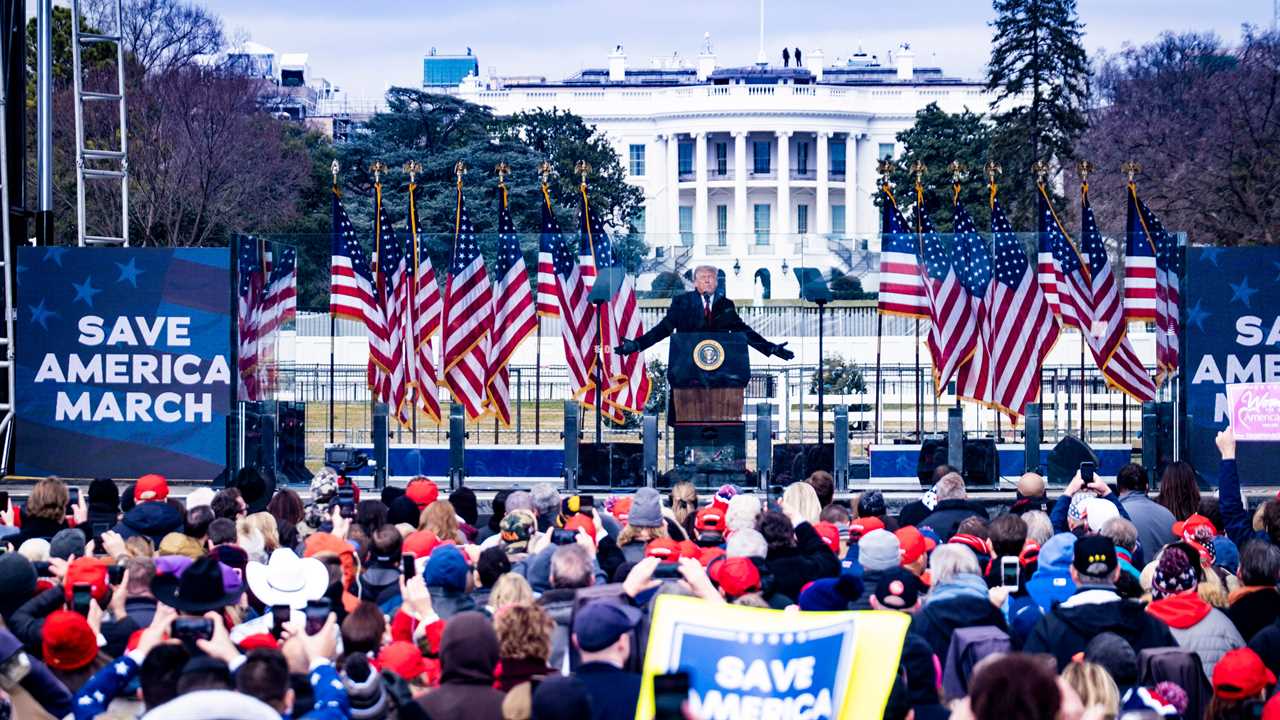
Federal prosecutors have substantially widened their Jan. 6 investigation to examine the possible culpability of a broad range of figures involved in former President Donald J. Trump’s efforts to overturn the results of the 2020 election, people familiar with the inquiry said on Wednesday.The investigation now encompasses the possible involvement of other government officials in Mr. Trump’s attempts to obstruct the certification of President Biden’s Electoral College victory and the push by some Trump allies to promote slates of fake electors, they said.Prosecutors are also asking about planning for the rallies that preceded the assault on the Capitol, including the rally on the Ellipse on Jan. 6 of last year, just before a pro-Trump mob stormed the Capitol.The federal investigation initially focused largely on the rioters who had entered the Capitol, an effort that has led to more than 700 arrests. But the Justice Department appears to have moved into a new phase, seeking information about people more closely tied to Mr. Trump. This development comes amid growing political pressure on Attorney General Merrick B. Garland to move more aggressively on the case.A grand jury sitting in Washington is investigating the rallies that preceded the storming of the Capitol, a person familiar with the matter said.One of the subpoenas, which was reviewed by The New York Times, sought information about people “classified as VIP attendees” at Mr. Trump’s Jan. 6 rally.It also sought information about members of the executive and legislative branches who had been involved in the “planning or execution of any rally or any attempt to obstruct, influence, impede or delay” the certification of the 2020 election.And it asked about the effort by Trump supporters to put forward alternate slates of electors as Mr. Trump and his allies were seeking to challenge the certification of the Electoral College outcome by Congress on Jan. 6.Another person briefed on the grand jury investigation said at least one person involved in the logistics of the Jan. 6 rally had been asked to appear.In pursuing Jan. 6 cases, prosecutors have been assembling evidence documenting how defendants have cited statements from Mr. Trump to explain why they stormed the Capitol. And prosecutors have cited in some cases a Twitter post from Mr. Trump weeks before Jan. 6 exhorting his followers to come to Washington, a call that motivated extremist groups in particular.The expanded criminal inquiry is unfolding as a separate investigation by the House select committee on the Capitol riot is gathering evidence about Mr. Trump’s efforts to hold onto power and weighing the possibility of making a criminal referral of Mr. Trump to the Justice Department.On Monday, a federal judge in California, in a civil case involving the House committee, concluded that Mr. Trump likely engaged in criminal conduct, including obstructing the work of Congress and conspiring to defraud the United States.Mr. Garland has given little public indication of whether the Justice Department would consider prosecuting Mr. Trump, saying only that the department will follow the facts wherever they lead.But the expanded inquiry, elements of which were reported earlier by the Washington Post, suggests that prosecutors are pursuing a number of lines of inquiry. Those include any connections between the attack on the Capitol and the organizers and prominent participants in the rally on the Ellipse, and potential criminality in the promotion of pro-Trump slates of electors to replace slates named by states won by Mr. Biden.The Justice Department previously said it was looking into the slates of electors that had falsely declared Mr. Trump the victor in seven swing states won by Mr. Biden.Even as election officials in the seven contested states sent official lists of electors who had voted for Mr. Biden to the Electoral College, the fake slates claimed Mr. Trump was the winner in an apparent bid to subvert the election outcome.Lawmakers, state officials and the House committee investigating the Jan. 6 riot had asked the Justice Department to look into the role played by those fake electors and the documents they submitted to the National Archives on Dec. 14, 2020. The grand jury subpoenas suggest that prosecutors are seeking to gather evidence of whether submitting the documents to a federal agency amounted to a crime.Capitol Riot’s Aftermath: Key Developments
Card 1 of 4Jan. 6 call logs.According to White House call logs, President Donald J. Trump attempted to cling to power by reaching out repeatedly to members of Congress before and during the Capitol attack. These logs also show a 7-hour gap with no record of calls when investigators know that Mr. Trump was making them.Trump’s tweetBy: Alan Feuer, Katie Benner and Maggie Haberman
Title: Justice Dept. Widens Jan. 6 Inquiry to Range of Pro-Trump Figures
Sourced From: www.nytimes.com/2022/03/30/us/politics/justice-dept-widens-jan-6-inquiry.html
Published Date: Thu, 31 Mar 2022 01:23:20 +0000
Read More
 UK PoliticsWorld PoliticsVideosPrivacy PolicyTerms And Conditions
UK PoliticsWorld PoliticsVideosPrivacy PolicyTerms And Conditions
